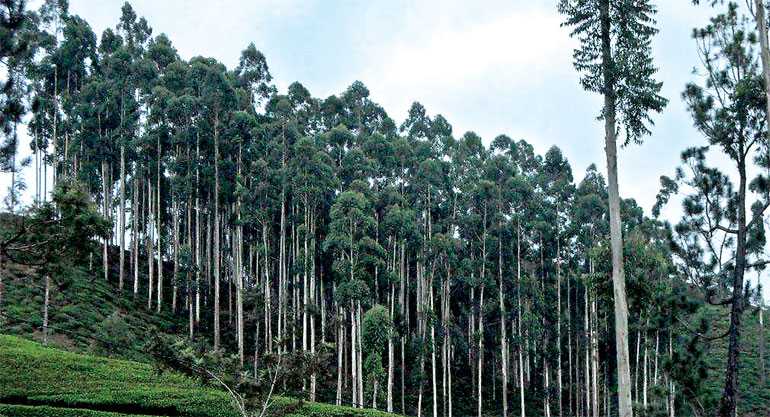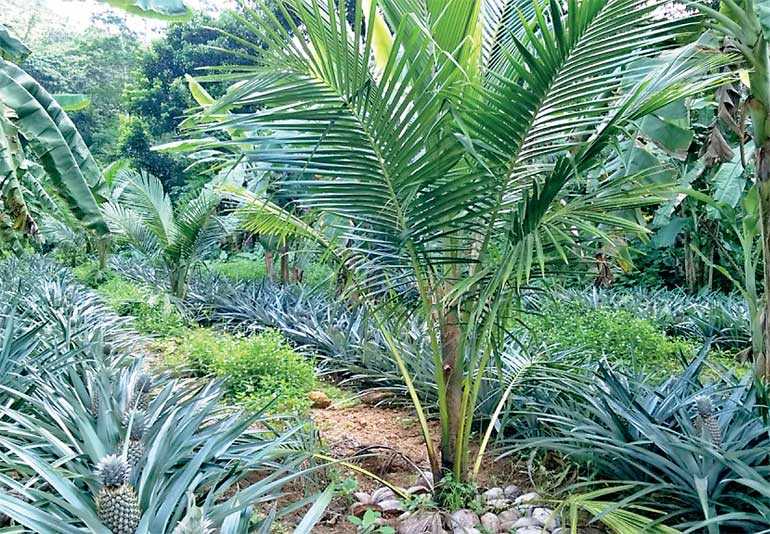Thursday Feb 19, 2026
Thursday Feb 19, 2026
Thursday, 4 July 2019 01:27 - - {{hitsCtrl.values.hits}}
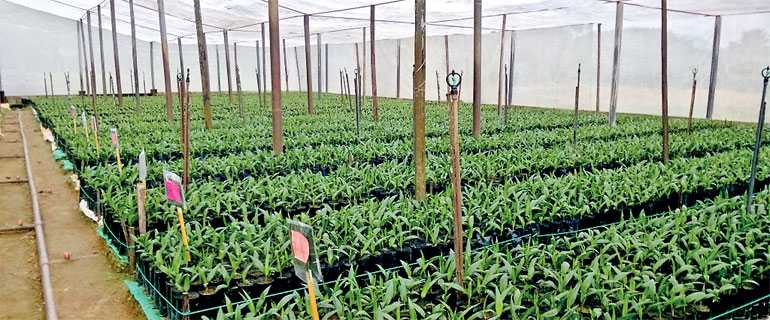
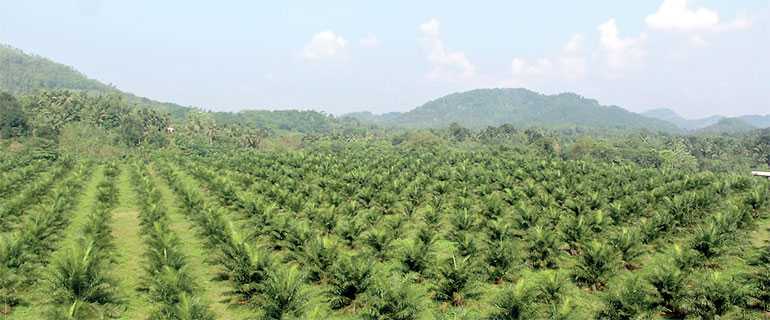
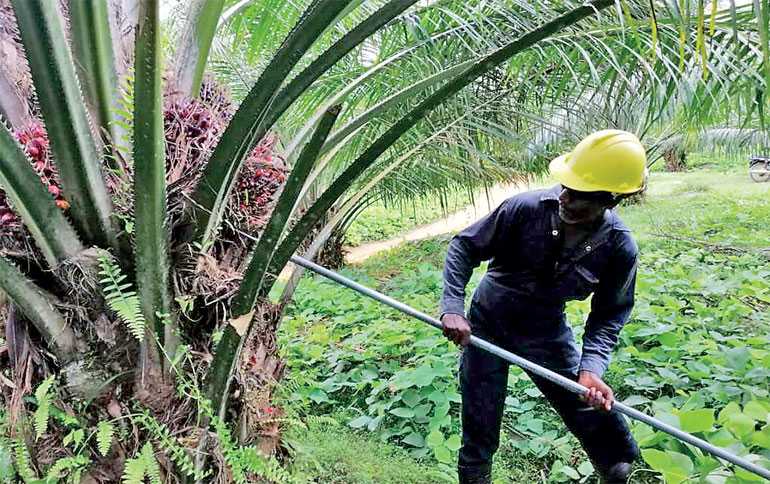
Sri Lanka’s Regional Plantation Companies (RPCs) have typically been associated primarily with tea and rubber, and to a lesser extent, spices like cinnamon. Over the recent past however, both of the country’s main perennial crops have begun to face unprecedented challenges – a scenario which is by no means unique to the Sri Lankan plantation economy.
Globally rubber producers have been severely constrained by persistent low prices for natural rubber since 2005 except 2010-2013. Meanwhile, current predictions anticipate that global natural rubber prices will remain deflated until around 2025. Tea producers face similar challenges. While global prices have not performed nearly as badly as rubber, they have not reached the peak they achieved in 2016.
Taken in that context, the foresight displayed in the decision by Horana Plantations PLC (HPL) to commence a rigorous program of exploring cultivation of more economically viable crops from 2013 has resulted in achieving the holistic level of expected sustainability. At the time, Horana Plantations PLC maintained a cultivated extent of 5547 Hectare (Ha) of which a crop mix of approximately 47% rubber, 42% tea, and the remaining 11% divided up among minor extents of coconut, cinnamon, timber and fuel wood.
It was in this environment that the management of Horana Plantations PLC took the critical decision to intensify diversification utilising a mixture of internally generated funds and prudent borrowing to phase out unproductive extents with new types of crops capable of supplementing the company’s revenue streams and improving its resilience to challenges in the tea and rubber industry.
“The traditional models set in place across the entire Sri Lankan plantation sector for over one and a half centuries are being challenged by global and local dynamics. Hence there is a clear imperative for our industry to adapt, and generally, Sri Lankan RPCs have always been the primary source of innovation in the domestic plantation sector. We take great satisfaction in outstanding strides that Horana Plantations PLC has made to continue this proud tradition of innovation through our intensive crop diversification initiative.
“This strategy helped Horana Plantations PLC to mitigate some of the challenges from the on-going down-turn in the global natural rubber industry. Moreover, the investments we have made are nearing completion, and we are also looking for innovative ways to build on the progress we have achieved, while generating internal operational synergies between our diversified crops,” Horana Plantations PLC CEO Manuja Kariapperuma explained.
Strength in diversity
Since then Horana Plantations PLC has invested approximately Rs. 450 million towards the establishment of new projects in Oil palm plantations, timber, cinnamon, coconut, pepper and fruits as part of a structured and intensified diversification program the first phase of which is to set to reach completion by 2020.
Consequently, Horana Plantations PLC would establish 460 hectares (Ha) of oil palm, and 620 Ha of timber/fuelwood together with 75 Ha of Ceylon cinnamon and 250 Ha of coconut. Additionally, Horana Plantations also plans to establish dedicated extents for pepper cultivation, and fruits of different varieties, having also enjoyed great success of intercropping soursop, lemon and pineapple with coconut in selected areas.
Currently, Horana Plantations PLC has a cultivated extent of 4,899 Ha of which 25% will be in oil palm, timber and other crops, 44% of tea and rubber constitute only 30%.
Challenges to oil palm cultivation
Among the most large scale diversifications undertaken by Horana Plantations PLC has been its venture into oil palm cultivation. Here too, the company planned intensively prior to establishment of its oil palm crops, having first committed to alleviating concerns of workers and local communities, while ensuring good agricultural practices suited for local conditions. The oil palm plantations are still in their preliminary phase and as an industry we continue to face serious challenges as a result of Government policies on this crop. Nevertheless, Horana Plantations PLC has committed extensively to the establishment of buffer zones, and other good agricultural practices in order to alleviate concerns. When such cultivation is carried out in adherence with the best science on the subject, there is no reason why oil palm cannot be both sustainable and highly profitable.
“Even at preliminary stage, we are able to generate a profit of over Rs. 250,000 per hectare on this crop. As a result, the potential for our Company, employees and the industry at large is enormous not forgetting the fact that it can serve as a vital source of revenue while buffering foreign exchange reserves and creating opportunities for import substitution,” Kariapperuma stated.
In keeping with these commitments, Horana Plantations PLC has established a highly impressive record in sustainable oil palm, having been the first plantation company in the world to have its oil palm operations officially certified by the Forest Stewardship Council (FSC) in recognition of its environmentally friendly, ethical and economically viable practices in oil palm cultivation. These included significant investments in biodiversity protection, water quality assurance and continuous improvement to environmental management practices while also comprehensively training staff in environmental conservation and sustainability.
It also serves to fortify HPL’s already strong accreditation list which features ISO 22000:2005, HACCP and ISO 9001:2008/QMS in addition to similar certification by the Rainforest Alliance, Ethical Tea Partnership and Fairtrade International.
“Our commitment and certification demonstrates the vital importance which Horana Plantations PLC attaches to sustainability. We must continue to find ways of ensuring that our business models are sustainable for future generations. To achieve this, we have to look to new business models, and new approaches to every aspect of the plantation industry. That is why we regard environmental conservation as a key responsibility which should be met at every layer of our operations and in conformity with the highest global standards,” Kariapperuma asserted.
Preparing for an uncertain future
Despite the many challenges that the agriculture and plantation sector continues to face in the form of a shrinking labour pool, increased cost of production, a volatile policy environment and longer term issues like climate change and the rise of global competitors, Kariapperuma has a decidedly positive outlook for Sri Lanka’s plantation industry.
“Certainly, the difficulties that we face today in our traditional crops are a serious concern, but the size and scope of our difficulties will ultimately be limited by our exposure to these sectors. Given that we have over a century of collective experience in plantations, it makes no sense whatsoever to simply abandon these crops, but we can and must seek ways to balance out our portfolio of crops and it is imperative that all stakeholders take every measure possible to encourage greater diversity.
“Ultimately it will be RPCs like Horana Plantations PLC who will be capable of taking the lead and championing this strategy. However, in taking these difficult but necessary steps, I am confident that we will unleash a new wave of growth for our industry,” he stated.
Responding to these dynamics, Horana Plantations PLC has already commenced pilot projects on outgrower and revenue share models as a means of creating greater earning capacity for employees and villages within a payment model that is more sustainable for the company.
Among the most notable of these ventures is a highly successful vegetables and fruits cultivation programme that provides the employees and villagers on the estates of Horana Plantations PLC with everything they need to grow an extremely wide range of vegetables and fruits, such as seeds and planting material. This recent pilot project was established considering the massive market for vegetables and with a view to improve the livelihood opportunities of our employees and villagers who maintain and cultivate vegetable in their spare time.
The company allows/permits these employees to keep a share of the produce for their consumption. The remaining produce is purchased by the company on guaranteed buy – back agreements with its employees to be sold to employees of related companies at a pop-up market each week at discounted rates. As a result of this strategy, the employees of our company as well as the employees of our related companies enjoy a significant reduction in cost of living.
Similarly, the company is also working to embrace new technology and techniques. Horana Plantations PLC was the first to import germinated oil palm seeds and is currently collaborating with the Coconut Research Institute for the establishment of a pioneering coconut seed garden potentially capable of expediting coconut production locally as well. Horana Plantations PLC is also the first in the country to introduce GI Mapping enabled autonomous drones for spraying micronutrients. However this activity at present is on hold due to the prevailing situation in the country.
“Most of the discussions around Sri Lanka’s plantation sector tends to be pessimistic about the future, but I for one still see tremendous untapped value, it’s just not all in the same places and crops as it used to be 150 years ago. There is no challenge that our industry faces which innovative thinking and dedicated execution cannot overcome,” Kariapperuma concluded.
